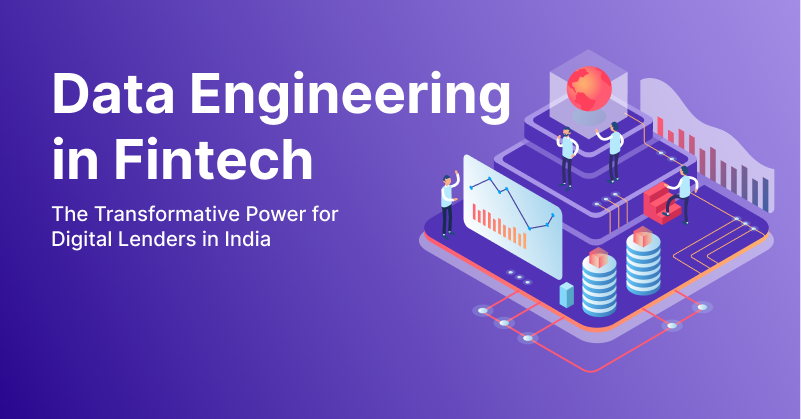The metamorphosis of the financial services industry is happening at an unprecedented pace. Nowhere is this more evident than in India's rapidly evolving Banking and Non-Banking Financial Companies (NBFCs). At the heart of this revolution is the intersection of technology and finance: Fintech. And the backbone of this fintech revolution? Data engineering.
Why Data Engineering?
Data engineering, at its core, refers to the discipline of designing, constructing, and maintaining the architecture that allows for effective data collection, storage, processing, and consumption. As data has become the new oil, the role of data engineering in powering data-driven decision-making, regulatory compliance, and customer experience optimization is increasingly important for all Fintechs in India.
The Cornerstone of Fintech: A Robust Data Architecture
The first step towards harnessing data's potential is constructing a robust data architecture. Data pipelines, ETL (Extract, Transform, Load) processes, and data warehousing are key components of this architecture. An efficient pipeline ensures that data flows seamlessly from various sources to a centralised data warehouse, where it is cleaned, organised, and made ready for analysis.
In the fintech context, data may flow from disparate sources like customer interactions, transactions, social media, and more. By implementing scalable cloud-based solutions such as AWS Redshift, Google BigQuery, or Azure Data Lake, Fintechs can manage this immense volume of data and drive real-time insights.
Data Governance and Regulatory Compliance
Data governance is the second pillar of a robust data engineering strategy. It involves managing the availability, usability, integrity, and security of data in enterprise systems. It's particularly crucial in the context of India's Banks and NBFCs, which are subject to stringent regulatory guidelines by the Reserve Bank of India (RBI).
Effective data governance requires implementing sophisticated data management solutions, like Apache Atlas or Collibra, that ensure data lineage, data quality, and metadata management. These tools empower Financial Institutions to meet RBI's regulatory compliance requirements and provide an audit trail for every data point, safeguarding against potential risk and liability.
Customer Experience Optimization through Data Engineering
Finally, data engineering drives customer experience optimization. Machine learning (ML) and Artificial Intelligence (AI) thrive on large volumes of high-quality data. By deploying robust data engineering strategies, Fintechs can feed these algorithms with the right kind of data, enabling personalized customer experiences.
Customer segmentation, credit scoring, fraud detection, and personalized marketing are just a few areas where AI/ML can deliver tremendous value. Data engineering lays the foundation for these advanced analytics capabilities, thereby directly impacting bottom-line results.
The Bottom Line: Strategic Advantage in a Competitive Landscape
As Fintechs continue to operate in a highly competitive landscape, those that effectively leverage data engineering will find themselves with a clear strategic advantage. Improved decision-making, regulatory compliance, and enhanced customer experiences can contribute to increased market share, lower costs, and improved profitability.
While the technical jargon of data engineering may seem daunting, its business implications are clear and profound. By strategically investing in data engineering capabilities, Financial Institutions can transform themselves into truly data-driven organizations. This will be a key differentiator in the next stage of the fintech revolution in India, paving the way for the future of financial services.
Call to Action
So, decision-makers, the question isn't whether to invest in data engineering - it's how fast you can do it. Are you ready to spearhead the fintech revolution by harnessing the power of data?
Don't wait for the market to dictate your strategy. Take the lead in driving the change. Your data engineering journey starts today. Contact our team of experts for a consultation on implementing a robust data engineering strategy that will not only future-proof your business but also give you a competitive edge in the marketplace. Remember, in the world of fintech, the future belongs to those who not only envision change but also act on it.

